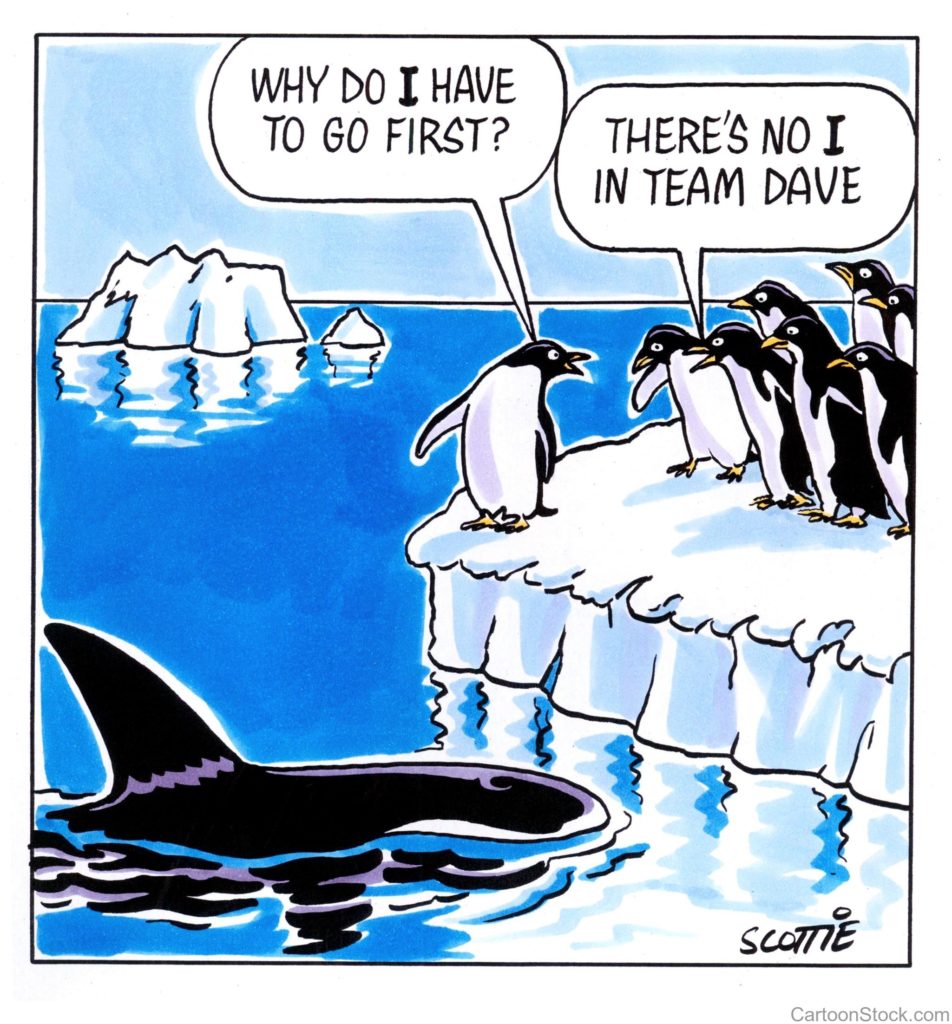 First who, then what. Jim Collins
First who, then what. Jim Collins
Twenty years ago I interviewed a friend who started and now manages a large company. He has 200 employees in the U.S. and about 15,000 in China. He designs and manufactures those obnoxious inflatables that you see in people’s yards on holidays – Santas at Christmas, scarecrows at Halloween.
Even today, I remember part of our conversation.
When I asked him his secret to building a successful business he immediately answered: “Hire the right people and take care of them.” I thought there must be more to it, so I asked him the same question in a different way. But his answer remained the same: Hire the right people and take care of them.
In my 40-year professional career, I’ve never managed a large organization or a sizable division, but I’ve led small organizations and I’ve read extensively in the area of leadership. I embrace the same conclusion as my friend: The most important element of leadership is to hire the right people and take care of them.
Carefully read what these notable leaders say about the importance of choosing good team members.
- “Not finance. Not strategy. Not technology. It is teamwork that remains the ultimate competitive advantage, both because it is so powerful and so rare. If you could get all the people in an organization rowing in the same direction, you could dominate any industry, in any market, against any competition, at any time.” Patrick Lencioni
- “How you select people is more important than how you manage them once they’re on the job. If you start with the right people, you won’t have problems later on. If you hire the wrong people, for whatever reason, you’re in serious trouble and all the revolutionary management techniques in the world won’t bail you out.” Red Auerbach, longtime Boston Celtics president
- “A leader’s most important decisions fall into two categories: big bets on people and big bets on strategy. The people decisions are arguably more important because they heavily influence the strategy decisions.” David Nadler
- “Given the many things that businesses can’t control (the economy, competitors) you’d think that companies would pay careful attention to the one thing they can control—the quality of their people, especially those in the leadership pool.” Larry Bossidy
Choose great team members. When you played sandlot baseball as a kid and you were able to choose your teammates, if you picked the best players you won. If you didn’t, you lost. The same goes for adult games; pick the best team members and your organization will prosper.
Next week we’ll think about how to choose good team members.
Three weeks from now I’ll write about how to develop your team members.
[reminder]What are your thoughts about this essay?[/reminder]

 In one of his letters, George Washington wrote that he and Martha had not had dinner at home alone for twenty years. Every night for twenty years—7,300 days in a row—they had guests and visiting dignitaries to entertain. (from: A. J. Jacobs, My Life as an Experiment, page 15)
In one of his letters, George Washington wrote that he and Martha had not had dinner at home alone for twenty years. Every night for twenty years—7,300 days in a row—they had guests and visiting dignitaries to entertain. (from: A. J. Jacobs, My Life as an Experiment, page 15) Several years ago I attended a concert at the Nasher Sculpture Center in downtown Dallas. About 80 audience members stood in a circle around the musicians. A baritone soloist and six disparate instruments performed Eight Songs for a Mad King by Peter Maxwell Davies. Completed in 1969 it is one of the most distinctive and disturbing musical compositions of the twentieth century. The eight songs document the imagined events from King George III’s famous and well-documented descent into insanity.
Several years ago I attended a concert at the Nasher Sculpture Center in downtown Dallas. About 80 audience members stood in a circle around the musicians. A baritone soloist and six disparate instruments performed Eight Songs for a Mad King by Peter Maxwell Davies. Completed in 1969 it is one of the most distinctive and disturbing musical compositions of the twentieth century. The eight songs document the imagined events from King George III’s famous and well-documented descent into insanity.  That’s all I can stands, and I can’t stands no more. —Popeye
That’s all I can stands, and I can’t stands no more. —Popeye